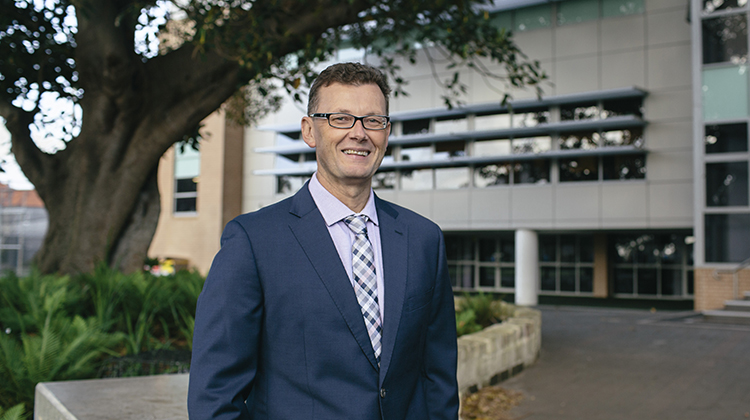Here’s why monitoring mental health is more important than ever this year

With a global pandemic adding a large dose of extra anxiety into the lives of our students and staff alike, having the tools and confidence to ask about mental health is more critical than ever.
While it’s too soon for any large-scale research on how the coronavirus outbreak will impact our young people in the long-term, we are already seeing mental health issues being exacerbated by the pandemic.
Initial research from the Australian Institute of Family Studies found that almost half (43 per cent) of respondents reported they or their partner had lost employment, reduced hours or wages; while 40 per cent of adults now always or often 'actively' cared for children during work. There’s no doubt that these stressful circumstances will have a trickle-down effect on students too.
Waverley College has a unique connection to mental health event R U OK? Day. The organisation’s founder, Gavin Larkin, was a parent at the school, and his family still has strong ties to Waverley and educators should take the time to think openly and honestly about how they can approach the critical subject of mental health. Every staff member at Waverley undergoes mental health training to achieve their Mental Health First Aid Certificate to assist them identify and support students struggling in this space.
How to ask if you’re OK?
Remind your students that it’s okay to talk about their own feelings with others, especially during these challenging times. Whether it’s talking to friends, family members, or trusted school staff, by having some form of meaningful conversation every day, they will feel a lot better equipped when it comes time to ask others how they’re feeling.
Signs like withdrawal from conversations or acting differently are all things to encourage your students to look out for in one another. Young boys, in particular, can be unaware of their feelings and don't know how to identify them, let alone process them. This can make sharing and opening up difficult, but not impossible.
Make sure your students are well-versed in asking open-ended questions so that a blunt ‘yes’ or ‘no’ response isn’t possible. The location of their discussions are important too: they should try to avoid formal sit down situations, which can often feel confrontational or combative. Broaching difficult topics while playing or walking are great options because many people – especially teenagers – find it easier to talk freely when they aren’t required to make eye contact.
Students also need to look out for the signs within themselves, and be mindful about their own mental health. Eventually, mental illness should be thought of in the same way as any physical illness. If we broke our leg, we would go to the doctor. It’s the same with mental health. The College’s Health centre reflects this with both its psychologists and nurse working alongside each other.
Stay connected
The pandemic has broken down many of our systems of connection with each other, whether it’s schools, hospitals, age care facilities, churches, border access, family support or other systems we rely on, we have had to find new ways to live our lives.
Part of R U OK Day’s message this year was about helping children stay connected with their friends and families; something educators need to help their students focus on, too.
The charity suggests the following ideas to help make that happen. Firstly, create a list. Think about who in your world, near or far who might be struggling. Then, dedicate the time. Make ‘time to ask’ as part of your daily routine. Finally, choose your channel: communicate in a way that works for you both, whether that’s a phone call, an SMS, video call or email. Alternatively, if you can meet in person, you might want to chat over the fence, go for a walk together or catch up for a cup of tea.
The 2020 pandemic has made our students’ relationship with their peers even more complex. Ironically, technology and social media can make our children feel even more isolated, especially if they put too much stock on virtual ‘likes’ and views. That being said, Zoom, Skype, or WhatsApp calls should be encouraged during these strange times.
R U OK? Day and events like it are a great occasion to reflect on our own attitudes to mental health, and to help our young people do the same. This is not just something to save for a single day of the year: it’s a lifechanging, year-round lesson for all of us.
About the author
Graham Leddie is Principal at Waverley College (est.1903), a Catholic School in the Edmund Rice Tradition for Year 5-12 boys. The College seeks to develop young men of faith and integrity through innovative learning, teaching and wellbeing programs that assist boys to flourish across their spiritual, cognitive, social, emotional, and physical dimensions. waverley.nsw.edu.au
Graham has a Masters of Educational Leadership, Masters in Religious Education, a Bachelor of Arts, and a Graduate Diploma in Secondary Education from the Australian Catholic University/Boston College. He has also recently completed the Stanford Executive Program within the Business School at Stanford University